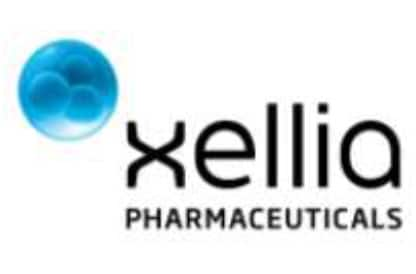 Xellia Pharmaceuticals
Xellia Pharmaceuticals
OpenText ALM supports digital transformation to deliver life-saving drugs faster by reducing application testing time by 30–40%

Products and services
Solution group

Outcomes
- 30–40% faster application testing
- Increased team collaboration corrects defects faster
- Improved overall application quality
- Full transparency instills confidence in FDA inspections
Challenge
Follow strict regulatory application testing guidelines, showing evidence throughout to ensure the test results cannot be manipulated.
Details
Time-consuming paper-based testing process
As a global pharmaceutical manufacturer, Xellia is under constant scrutiny from regulators. The Food and Drug Administration (FDA) ensures the quality of drug products by carefully monitoring manufacturers’ compliance with its Current Good Manufacturing Practice (cGMP) regulations. The cGMP regulations for drugs make sure that a product is safe for use, and that it has the ingredients and strength it claims to have.
With many applications, such as Oracle ERP modules, quality management, change management, document management, manufacturing, and serialization systems, Xellia managed a paper-based application testing process, as described by Per Bischoff Kristiansen, QA IT Compliance Specialist for Xellia: “Our testing processes are well defined through Standard Operating Procedures, and we have to show physical evidence for every step to prove the integrity and security of our process. We collaborate with sites around the world, and when a test case needs to be signed off by different people, in specific order and all in different locations, you can imagine that this would easily take 2-3 weeks; even longer if there is a delay at some point.”
The process lacked transparency and when defects were identified during the test phases, it was unclear if, how, and when they had been resolved. This all led to delays and often lastminute remediation actions.
Because issues are highlighted earlier in the process, they can be addressed straightaway, resulting in higher quality applications. Even taking into account the initial time investment of having to enter the tests into OpenText™ ALM Quality Center, I still estimate a time saving of at least 30–40 percent.
Increase test quality, accuracy, and efficiency with ALM
Miracle 42, a Danish IT consultancy firm, is certified in best practice testing methods and tools. It specializes in life sciences and is very familiar with FDA regulations. For Kristiansen, Miracle 42 was the obvious partner to discuss test automation, to increase test quality, accuracy, and efficiency for Xellia. Ole Kramer, Director, Service and Support for Miracle 42 presented their proposed solution: “We recommended ALM, which in our view is the mother of all test tools. It is not only a functional test solution, but it encompasses all steps involved in test management, going from requirements, test cases, test execution, defect management, and release management; all working seamlessly together to create a central repository.”
The implementation was done at Miracle 42’s hosting datacentre, and also included Agiliprove, a TechData solution that was integrated with ALM. This enables requirements routing, electronic signatures, and the ability to lock test cases once they are completed, to assure FDA inspectors that test results have not been manipulated. Every individual test phase requires approval before the process moves forward. Within three weeks of starting the ALM implementation, the system was ready to begin the first test project: the serialization system
We work with project members from various time zones, and with the paper-based system this would always complicate matters. Based on previous experience this test process could take one month. With ALM workflows guiding us through the process, we finished it in a week.
Testing completed in a week instead of anticipated one month
The assignment of a unique serial number linked to the individual production data, in conjunction with sealed labels on the packaging ensures the authenticity and integrity of a drug unit and protects against tampering. Kristiansen felt this was a perfect test case for ALM: “We work with project members from various time zones, and with the paper-based system this would always complicate matters. Based on previous experience this test process could take a month. With ALM workflows guiding us through the process, we finished it in a week.”
Kristiansen notes the improved team collaboration as an unexpected benefit: “We have daily testing meetings, and with everyone working from the same central ALM system we can highlight any defects early on in the process. Often defects are corrected there and then in our multidisciplinary meetings, shortening the release cycle and removing communication bottlenecks. Before, it would take days, or even weeks to decide how a defect would be managed.”
ALM’s built-in audit log capabilities track all changes to a specific entity. Kristiansen appreciates this: “We leverage the ALM audit trail and plan to use this for periodic review of our computer systems. Depending on the system criticality we are required to formally check our systems and documentation every 1-5 years. With ALM we can limit the audit log to just the fields that we need for this activity.”
30–40% time savings and higher quality applications
The benefits of the ALM model extrapolate with each new project, as the repository grows. “Because issues are highlighted earlier in the process, they can be addressed straightaway, resulting in higher quality applications”, says Kristiansen. “Even taking into account the initial time investment of having to enter the tests into ALM, I still estimate a time saving of at least 30–40 percent.”
He concludes: “Although our paper-based test processes worked, it would be time-intensive to deliver the required information during authority inspections. Now, our transparent system shows our inspectors we are in control of our processes and fully confident in the information we share.”
About Xellia Pharmaceuticals

Xellia Pharmaceuticals is a specialty pharmaceutical company providing important anti-infective treatments against serious and often life-threatening infections. Xellia is wholly owned by Novo Holdings A/S and has state-of-the-art manufacturing facilities located in Denmark, Hungary, China, and the U.S.